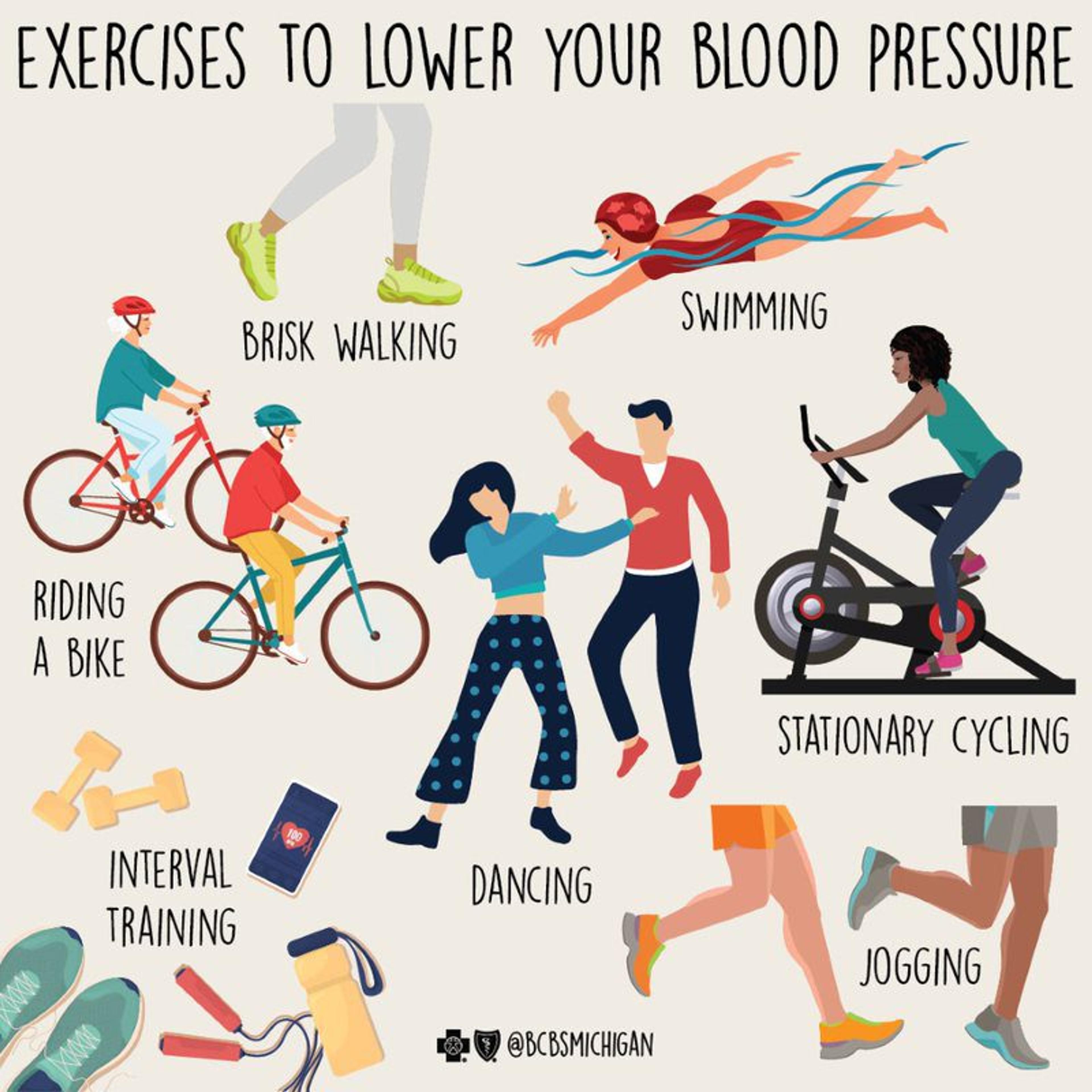Best Exercises to Lower Blood Pressure
Shandra Martinez
| 3 min read

When people go into their doctor’s office for a checkup and a blood pressure cuff is snugly wrapped around their upper arm, some of those patients will find they’re in for an unpleasant surprise: a diagnosis of high blood pressure. Also called hypertension, this can be a dangerous condition. It’s linked to sometimes-fatal health issues like heart attacks and strokes, but can also have other lesser but still worrisome health consequences. Exercise is one way to lower blood pressure almost immediately. Let’s look at some of the best exercises to accomplish this.
What is high blood pressure? Blood pressure is just what it sounds like: measuring the pressure blood in the body exerts as it pushes against the walls of the arteries. It’s normal for a person’s blood pressure to increase and then decrease during the day, but concerns arise when blood pressure remains high, according to the Centers for Disease Control and Prevention (CDC).
So what’s a normal blood pressure? A measurement of about 120/80. Six years ago, the American Heart Association announced new guidelines for high blood pressure that labeled hypertension as any pressure reading at or above 130/80.
What to know about high blood pressure
Hypertension is a common health problem in the United States. The CDC shares these fast facts:
- Nearly half of all U.S. adults have high blood pressure, or are taking medication for it
- More than 670,000 deaths in the U.S. were linked to hypertension in 2020
- Only 24% of adults diagnosed with high blood pressure have their condition under control

In addition to heart disease, heart attacks and strokes, hypertension can cause chronic kidney disease and damage to the eyes and other organs.
Why exercise can help. Weight loss, healthy eating and reducing sodium intake can all help with either keeping hypertension at bay or lowering blood pressure levels. But regular physical exercise can be a game-changer for some people looking to lower their numbers, according to the Mayo Clinic. Engaging in a form of moderate cardio activity can lower a person’s blood pressure by anywhere from five to 8 pressure points. When a heart is pumping during exercise, it becomes stronger and it takes less effort to pump the blood through. In this way, the force of the blood on the arteries decreases, which means a lower blood pressure.
This benefit from exercise is even true for people who have not had good luck lowering their blood pressure with prescribed medication. One study showed that people who did not find success with medication were able to lower their blood pressure by a noticeable amount when they began incorporating regular exercise.
When it comes to exercise, consistency is key. People trying to lower their high blood pressure should aim for 30 minutes of exercise each day. Exercise can also help those who are on the edge of hypertension, but have not been officially diagnosed. Some kinds of exercise that are seen as particularly helpful in lowering blood pressure include:
- Brisk walking
- Jogging
- Riding a bike outside
- Stationary cycling inside
- Swimming
- Dancing
- Interval training
And don’t forget about strength training. The Mayo Clinic says lifting weights can help lower blood pressure, too, but should be incorporated into a daily exercise routine a couple days each week.
Related:
Photo credit: Getty Images





